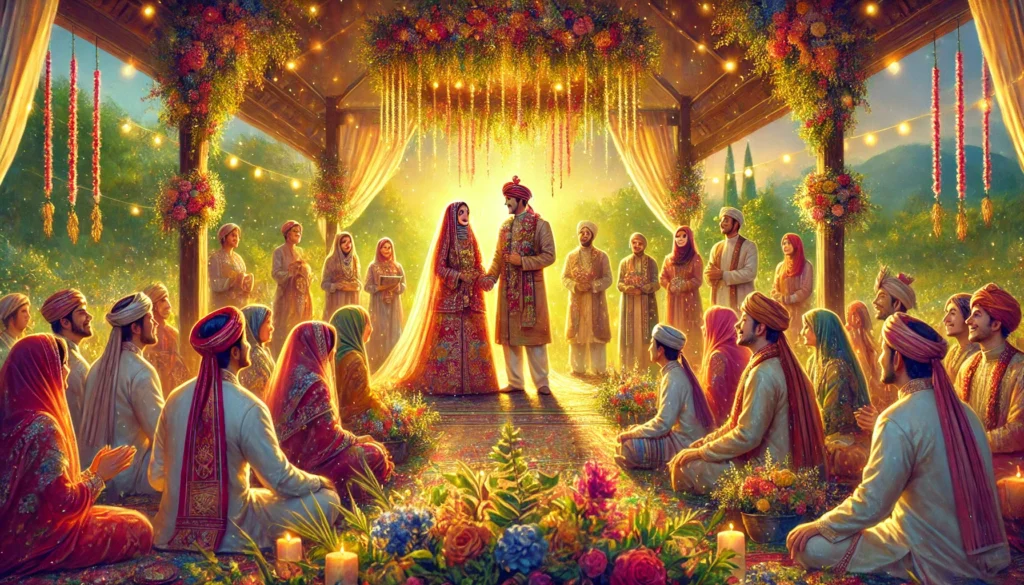Contested Divorce

Same Religion Marriage in India: Legal Insights and Landmark Judgments
Same religion marriage refers to unions between individuals who belong to the same religion. In a diverse country like India, where religious beliefs often play a significant role in personal relationships and social structures, same religion marriages are the most common form of marital unions. However, even within this framework, there are legal complexities and societal nuances that influence such marriages. This article explores same religion marriage, its significance in Indian jurisdiction, its connection with the Indian Constitution, and the landmark judgments that have shaped its legal standing.
What is Same Religion Marriage?
A same religion marriage is a union between two individuals who follow the same religious faith. In India, where multiple religions coexist, marriages within the same religious group are guided by personal laws specific to each religion. For example:
- Hindu marriages are governed by the Hindu Marriage Act, 1955.
- Muslim marriages follow Muslim Personal Law.
- Christian marriages are governed by the Indian Christian Marriage Act, 1872.
These laws address various aspects of marriage, including age of marriage, consent, rights within marriage, divorce, inheritance, and more. Same religion marriages typically proceed according to the personal laws of the individuals involved.
Why is Same Religion Marriage Significant?
Same religion marriage plays a crucial role in preserving religious and cultural traditions. Since marriage in many religions is seen as a sacred union, it is often deeply intertwined with religious beliefs, practices, and rituals. The significance of same religion marriage in India includes the following:
- Religious Continuity: Marriages within the same religion help maintain the religious identity of individuals and families, ensuring the continuity of religious practices and customs.
- Legal Clarity: Marriages between individuals of the same religion are governed by clear and established personal laws, making the legal process smoother in terms of rights, duties, and responsibilities within marriage.
- Cultural Integration: Same religion marriages ensure compatibility in terms of cultural practices, customs, and family traditions, which can make the marriage more socially accepted.
- Simplified Legal Proceedings: Since same religion marriages are governed by personal laws that apply specifically to the respective religion, there are fewer legal hurdles when compared to inter-religion marriages, which require the Special Marriage Act, 1954.
In the Indian context, same religion marriages are often the default choice for many individuals due to religious, familial, and societal expectations. However, legal complexities can arise in the form of marital disputes, inheritance issues, and divorce proceedings, which are regulated differently under each personal law.
Constitutional Perspective
Article 14 (Right to Equality)
- Ensures equal treatment of spouses before the law, irrespective of gender.
Article 15 (Prohibition of Discrimination)
- Prohibits gender-based discrimination in marital rights and remedies.
Article 21 (Right to Life and Personal Liberty)
- Protects individuals from marital conditions that violate dignity or personal liberty, forming the basis for laws against cruelty and harassment.
Legal Framework for Same Religion Marriage
In India, same religion marriages are primarily governed by the personal laws of each religion. Some of the key personal laws include:
- Hindu Marriage Act, 1955: This law applies to Hindus, Buddhists, Jains, and Sikhs. It lays down the requirements for a valid marriage, including the age of consent, monogamy, and prohibited degrees of relationship.
- Muslim Personal Law (Shariat Act), 1937: Muslim marriages are governed by personal laws based on the Quran and other religious texts, which include provisions for marriage, divorce, maintenance, and inheritance.
- Christian Marriage Act, 1872: This law governs Christian marriages in India, setting out rules for marriage registration, the role of religious authorities, and the legal procedures involved in a Christian union.
- Parsi Marriage and Divorce Act, 1936: This law governs the marriage and divorce of Parsis, based on their religious practices and customs.
For same religion marriages, individuals are subject to the provisions of these laws, which cover a wide range of marital issues such as:
- Marriage Registration: Validates the union under the respective personal law.
- Rights and Duties: Defines the roles, responsibilities, and rights of spouses.
- Divorce and Separation: Outlines the grounds on which a marriage can be dissolved and the rights of individuals upon dissolution.
While same religion marriages are relatively straightforward in terms of legal recognition and protection, issues such as inter-caste or inter-community unions, dowry, or divorce may introduce complexities that require legal intervention.
Constitutional Perspective
Right to Equality (Article 14)
- Ensures equal treatment of spouses before the law, irrespective of gender.
Article 15 (Prohibition of Discrimination)
- Prohibits gender-based discrimination in marital rights and remedies.
Right to Life and Personal Liberty (Article 21)
- Protects individuals from marital conditions that violate dignity or personal liberty, forming the basis for laws against cruelty and harassment.
Comprehension of Same-Religion Marriage and Its Constitutional Basis
Same-religion marriages are legally and constitutionally valid, but they often intersect with societal norms, personal laws, and constitutional principles. Understanding the constitutional foundation for these marriages can be broken down as follows:
- Constitutional Right to Choice:
- Article 21 of the Indian Constitution ensures every individual the freedom to marry a person of their choice.
- Protection Against Discrimination:
- The Constitution guarantees equality before the law (Article 14), ensuring that same-religion marriages are legally recognized and protected without discrimination.
- Freedom of Religion:
- The Constitution allows individuals to practice their religion freely while maintaining secular values. Same-religion marriage aligns with the right to freedom of religion and personal choice.
Judicial Interpretation and Landmark Judgments
While same religion marriages generally follow established personal laws, landmark judicial rulings have shaped how these laws are interpreted and applied in India. These judgments often address issues of marriage registration, rights within marriage, and protection of individual freedoms.
1. Shah Bano Case (1985)
One of the most influential judgments in Indian marital jurisprudence is the Shah Bano case (1985). While the case primarily dealt with Muslim Personal Law and maintenance rights, its broader implications on marriage laws and gender equality are significant.
The Shah Bano case sparked a nationwide debate on the need for a uniform civil code, which would standardize marriage laws across different religions. Although same religion marriages were not directly the focus, the case highlighted the disparities in how marital rights, such as maintenance, are treated differently under various personal laws.
The case led to the Muslim Women (Protection of Rights on Divorce) Act, 1986, which made specific provisions related to Muslim divorces and maintenance. This judgment encouraged calls for a more cohesive approach to family law in India, impacting not just same religion marriages but also the broader legal framework surrounding marital rights.
2. Sarla Mudgal vs. Union of India (1995)
The Sarla Mudgal case (1995) focused on a Hindu man who converted to Islam to marry a second wife, which was in violation of Hindu marriage laws. The case explored the issue of conversion for marriage, which is particularly relevant for same religion marriages when one party tries to change their religious identity.
The judgment emphasized that conversion solely for the purpose of marriage would not be legally valid. It underscored the principle of religious freedom but also established that such conversions should not be manipulated for personal gains, thereby protecting the sanctity of same religion marriages and preventing misuse of religious conversion for marriage.
3. K.S. Puttaswamy vs. Union of India (2017)
The K.S. Puttaswamy case (2017), which upheld the right to privacy as a fundamental right, also extended its implications to same religion marriages. This landmark judgment reinforced the idea that the right to marry, including the right to enter into a same religion marriage, is a private matter protected under the right to privacy.
This ruling reaffirmed the constitutional validity of personal choices in marriage, reinforcing the autonomy of individuals to decide their life partners, irrespective of societal or familial pressures. It solidified the legal recognition of same religion marriages as a fundamental personal right under the Indian Constitution.
Comprehending Same Religion Marriage in Indian Jurisprudence
In Indian jurisprudence, same religion marriage is often seen as the legal default. The personal laws governing same religion marriages provide clear guidelines for the validity of such unions, safeguarding the rights of individuals within marriage. Judicial interpretations, as seen in landmark cases like Shah Bano, Sarla Mudgal, and K.S. Puttaswamy, have expanded and clarified the legal protections for individuals within these marriages, especially when issues like divorce, maintenance, and conversion arise.
The Indian Constitution guarantees fundamental rights, including the right to marry and the right to privacy. As such, same religion marriages are not only legally valid but are also protected under the Constitutional framework, ensuring individuals’ autonomy to enter into marriage within their faiths.
Important Links
Advocate Tabish Anmad
https://www.linkedin.com/in/advocate-tabish-ahmad-667015326
Our Legal Networks
